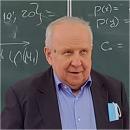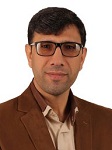







Special Issue Information
Dear colleagues,
Considering human civilization from the standpoint of modern science, we must confidently draw a conclusion about its urban nature. In a historical retrospective, the exclusive role of the city in the formation of the two main elements of civilization: the state and scientific and technological progress is clearly visible. The city as an "embryo" and an obligatory sign of any state has now reached such a level of its significance that it is already beginning to "compete" with the state itself. Theories of “world cities” have emerged, which consider their system as a future alternative to the state structure of the world order.
The city is the source and place of application of the results of scientific and technological progress. In recent years, developments within the concept of "smart city" - "smart state" - "smart planet" have become especially relevant.
The complex of modern directions in the study of the city allows us to consider it as a complex mechanism of technogenic information civilization, as a result of worldview changes caused by global trends in the spiritual, environmental and socio-communicative processes of modern society.
Modern developed states can be represented as a set of highly urbanized territories (agglomerations) and largest cities (megacities), which, in fact, are the highest political, legal and economic and legal form of government. In fact, this political-legal, socio-economic, economic-engineering, cultural-psychological, urbanistic and managerial network of city ties, based on the most complex system of social relations, ensures the stability of all institutions of society and the state.
Reasonable questions arise - how well and fully do we imagine the life of a modern city? How objective and real is the information on the basis of which the authorities make crucial decisions? What and how does a city dweller live today? The answer to these questions requires a broad interdisciplinary approach in one's study of a range of humanities and natural sciences.
Urbanology will make it possible to ensure this consistency and "connectedness" of various types of scientific views, assess the state of the city and model the processes of legal impact on functional ties, predicting and overcoming emerging problems.
Thus, we are interested in urban research conducted by scientists - representatives of various humanities, dedicated to the history of origin and development, legal, economic, social, urban, cultural and other issues of urban life.
To do this, it is necessary to collect experience in the development of various theories and strategies of the city that have been implemented and consider their consequences. Research articles and reviews in this field of knowledge are welcome.
Prof. Vladimir Tabolin
Dr. Cheng Xu
Dr. Syed Muhammad Asad
Assoc. Prof. Muhammad Asim Saleem
Assoc. Prof. Ali Asghar Pilevar
Dr. Ji Zheng
Prof. Yanpeng Jiang
Assoc. Prof. B. Surendiran
Section Editors
Keywords
City; Urbanology; Interdisciplinary Studies of Cities; Urban Civilization; Urbanization; City Law

